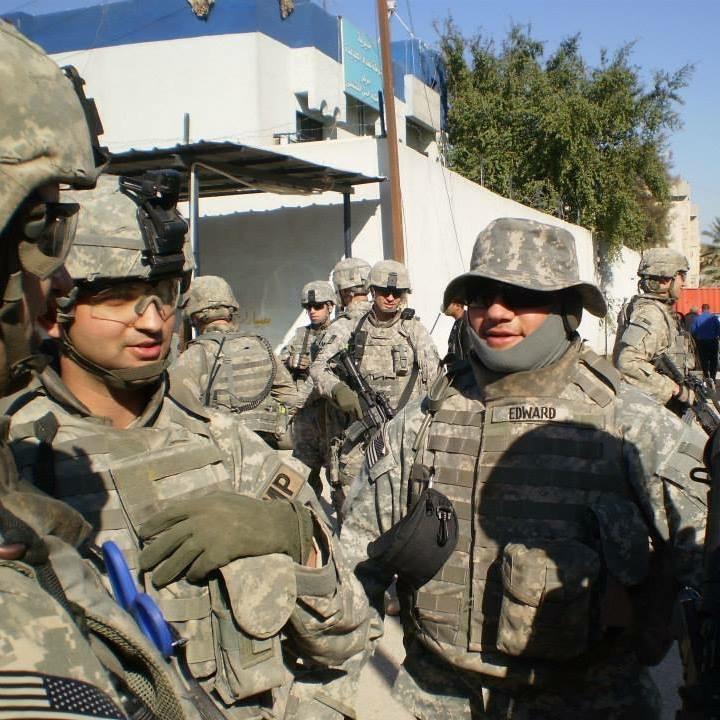Wisam Albaiedhani (left) is shown interpreting for US troops in Iraq. He's been trying without success since 2010 to get his elderly father a US visa.
The partial travel ban and its complex provisions have thrown many potential immigrants and their families into a tailspin.
Take the case of the Albaiedhani family.
Wisam Albaiedhani and his brother Khalid worked as interpreters for American troops in Iraq after the US invasion and faced persecution in Iraq as a result. Though they're both US citizens now, the brothers haven't been able to bring their elderly father and younger siblings to the US, even though the family can prove they've been targeted as "traitors" by Baghdad militia.
Their sacrifice extends beyond the immediate family. Their father's brother also served as a translator and was kidnapped and killed. Still, the brothers have had no success in winning a visa for their father, although they would seem to fit all the criteria the US lays out.
The brothers' efforts have been ongoing since 2010 and with many false starts. Their frustrations have mounted.
Last summer, Wisam's father received a "green light" from US embassy officials. The elder Albaiedhani was cleared to emigrate. He was told he was booked on a flight, so he sold his family's house and all his possessions. But then his visa was denied, for no stated reason.
"We asked Homeland Security, we asked State Department to give us a reason why they denied him. We received absolutely no answers, just 'denied for security purpose,'" Wisam says. "How can you deny a family that has not just one member but three members that served with the United States Army during the war in Iraq? This family is a threat to US security?"
The brothers enlisted the aid of lawyers, lawmakers and Gold Star parents. Finally, in early June, the US State Department rescinded the visa denial. The family rejoiced.
But now, given the partial reinstatement of President Donald Trump's ban on travel and migration from six mostly Muslim countries, and a related 120-day delay for refugees, the Albaiedhani family is back in limbo.
"I know that the ban didn't include Iraq, but it includes Muslims, and my family is Muslim," Wisam says. "It will delay things, and my family cannot take any more delays. And God knows what's going to happen after that delay. After the 120 days, what is [Trump] going to come up with?"
The elder Albaiedhani recently underwent surgery in Baghdad and is now recovering. He still longs to join his sons.
"What hurts him more is that we are in two different places. We can't reach each other, we can't help each other," Wisam says. "Trump doesn't see the reality of innocent people stuck [in Iraq]. You've just basically given chances to bad people to come after my family, and all those innocent people, to kill them."
